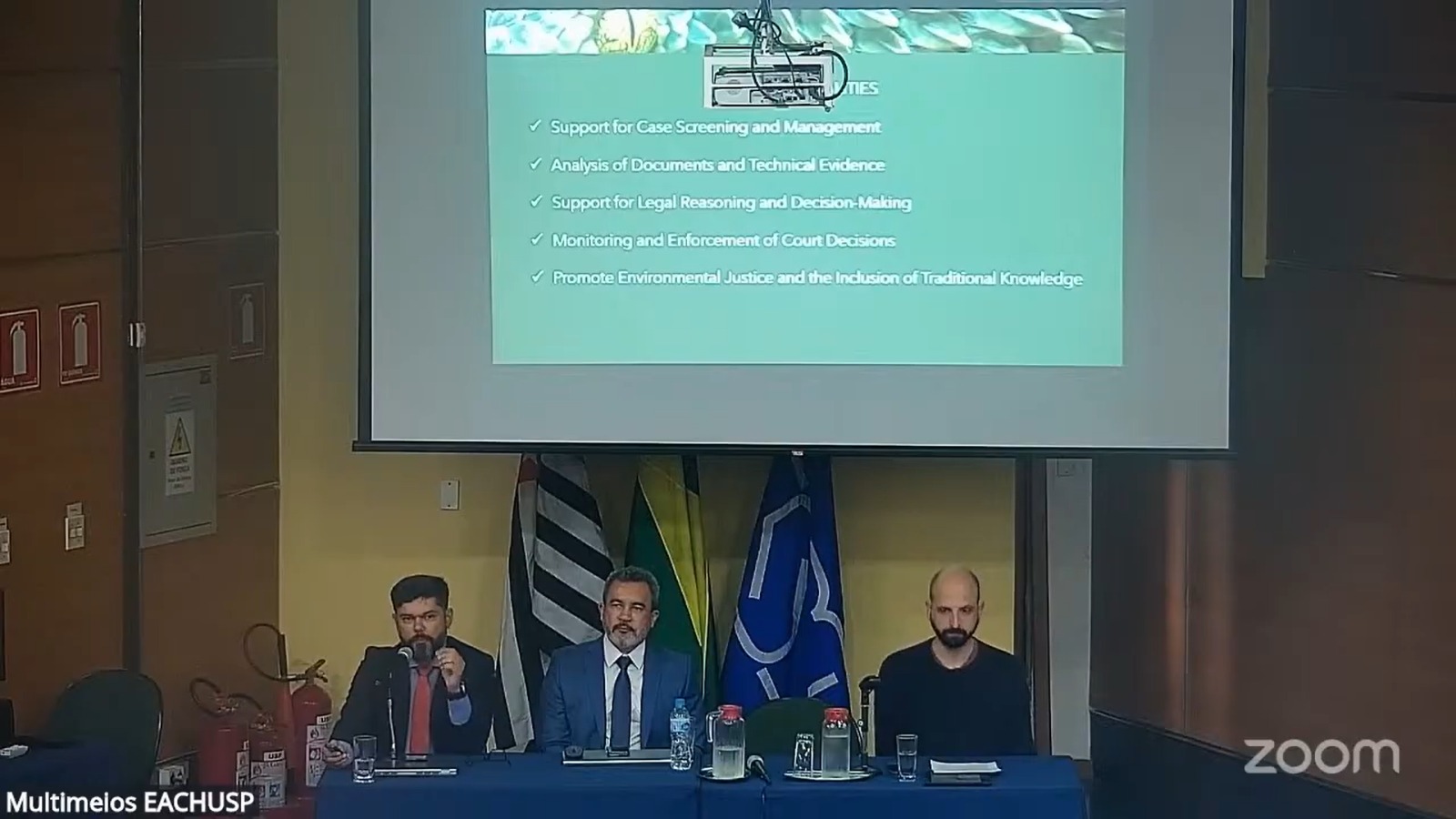
Judge Wellington Magalhães, deputy director of the Superior School of the Judges of the State of Tocantins (Esmat), presented on Wednesday (the 6th) the first results of his postdoctoral research at the International Symposium on the Future of Artificial Intelligence, held by the University of the state of São Paulo (USP). Focusing on the application of generative artificial intelligence in environmental actions, the study points to innovative ways to increase the effectiveness of environmental jurisdiction in the face of challenges such as the climate crisis and the overload of the Judiciary.
The research, developed within the scope of the School of Arts, Sciences, and Humanities at USP (EACH/USP), investigates the potential of generative AI to support the automated screening of actions, the technical analysis of environmental evidence, legal reasoning, and the monitoring of compliance with judicial decisions in environmental proceedings. Always anchored in principles of ethics, transparency, and the valuing of traditional knowledge, the tools under development seek to reduce delays and increase legal certainty in decisions.
The initiative reinforces the strategic role of the Judiciary in promoting environmental justice and addressing the socio-environmental impacts that particularly affect traditional communities, indigenous peoples, and vulnerable populations. By integrating technological innovation with social and environmental responsibility, the proposal contributes to strengthen a more accessible and efficient justice system that is connected to the challenges of our time.
About the judge
With a PhD in Regional Development from the Federal University of the state of Tocantins (UFT) and a trainer at the National School for the Training and Improvement of Magistrates (ENFAM), the magistrate points out that the model can be replicated in other judicial units, provided that institutional safeguards and ethical parameters are respected.
“Technology should be an ally in building a faster, more participatory, and environmentally committed Justice," he says.




